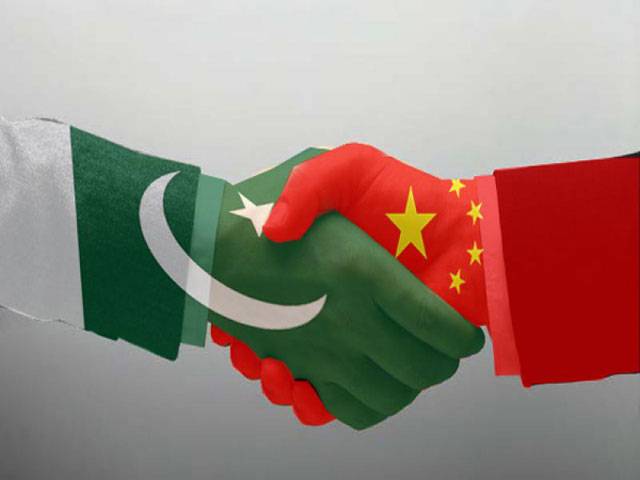ISLAMABAD - Scholars were unanimous in blaming bureaucratic red tape for stalling progress of economic cooperation between Pakistan and China as well as at the regional level.While major projects took time to start and limped along through procedural delays, trade prospects dwindled on account of our private sector’s obsession with doing business only with the Western countries. They said this was Asia’s century led by China’s principled policy of peace and economic development. By rejecting confrontational and hegemonic policies and pursuing peace, China has brought a positive change in the strategic clime of the region.Senator Mushahid Hussain and prominent experts were addressing a conference on “Pakistan-China Economic Cooperation with special focus on Thar Coal, Kashgar Special Economic Zone and Gwadar Sea Port” organised by Islamabad Policy Research Institute (IPRI). The senator said that it was an important juncture of time as the region was in transition: a new leadership was taking over in China, elections were due in Pakistan and Afghanistan would be entering a new phase on the US exit next year. He said China’s principled pursuit of peace and rejection of containment and hegemony had made it the leader of Asia and defeated the proponents of a new great game and cold war. He said there were immense prospects of economic cooperation between Pakistan and China but bureaucratic delays stood in the way. The red tape and ‘babugiri’ will have to be slashed if mega projects with Chinese help were to materialize in time. He further said that closer cooperation driven by economy and energy not only in between Pakistan and China but also among all Central Asian states was crucial. He also mentioned about the tripartite conference of Pakistan, China and Afghanistan, which was going to be held next month for creating and maintaining stability in Pakistan. Professor Zhou Rong, Senior and Chief Correspondent in Pakistan for Chinese Guang Ming Daily said, “Gwadar Port is a natural continental bridge.” He said that Gwadar port would not benefit India, but Pakistan, China and central Asian states would get benefit out of it. Mr. Rong also emphasized on people-to-people contact, which can be and is being strengthened through learning each other’s languages.Fazal-ur-Rehman, Director Strategic Studies Institute, Islamabad said that bilateral trade had increased manifold but factors like infrastructure deficit, particularly in energy, poor technological infrastructure, low labour productivity, low levels of value added addition in manufacturing, little foreign direct investment (FDI), anti-export bias in taxation, increasing costs of exports compared to imports, lack of product and geographical diversification in exports and absence of economies of scale in the production processes, especially in the Small and Medium Enterprise ( SME) sector, were behind the sluggish growth of Pak-China economic relations. He lamented that Pakistan had a narrow base for exportable commodities particularly in terms of Chinese demand. Diversifying commodities to make them suitable and attractive could enhance the volume of exports and rectify the trade imbalance. Similarly, Pakistan should strive for best trade practices and policies. He also emphasized that there was a dire need to counter unregistered trade between the two states. Another speaker Dr Shabir Ahmad said that the Gwadar port’s location would facilitate trade among more than two dozen countries of Persian Gulf, the Central Asian Republics, Iran, Afghanistan, East Africa, Pakistan and China. He explained that Gwadar provided China a land-based oil supply route. Gwadar port connection with Karakoram Highway (KKH) and Kashgar economic zone provides the best architecture for economic and trade cooperation between Pakistan, China and Central Asia.Dr Noor-ul-Haq, Acting President IPRI, summing up emphasized the need to bring in convergence in Pakistan’s policy with China’s if Pak-China economic cooperation is to realize its potential.
Friday, April 19, 2024
Bureaucratic red tape stalling Pak-China economic ties

Sports Minister opens gymnasium hall, multi-purpose stadium
April 19, 2024
3.5-magnitude earthquake hits Quetta
1:10 AM | April 19, 2024
Hepatitis Challenge
April 18, 2024
IMF Predictions
April 18, 2024
Wheat War
April 18, 2024
Rail Revival
April 17, 2024
Addressing Climate Change
April 17, 2024
Justice denied
April 18, 2024
AI dilemmas unveiled
April 18, 2024
Tax tangle
April 18, 2024
Workforce inequality
April 17, 2024
New partnerships
April 17, 2024
ePaper - Nawaiwaqt
Advertisement
Nawaiwaqt Group | Copyright © 2024





